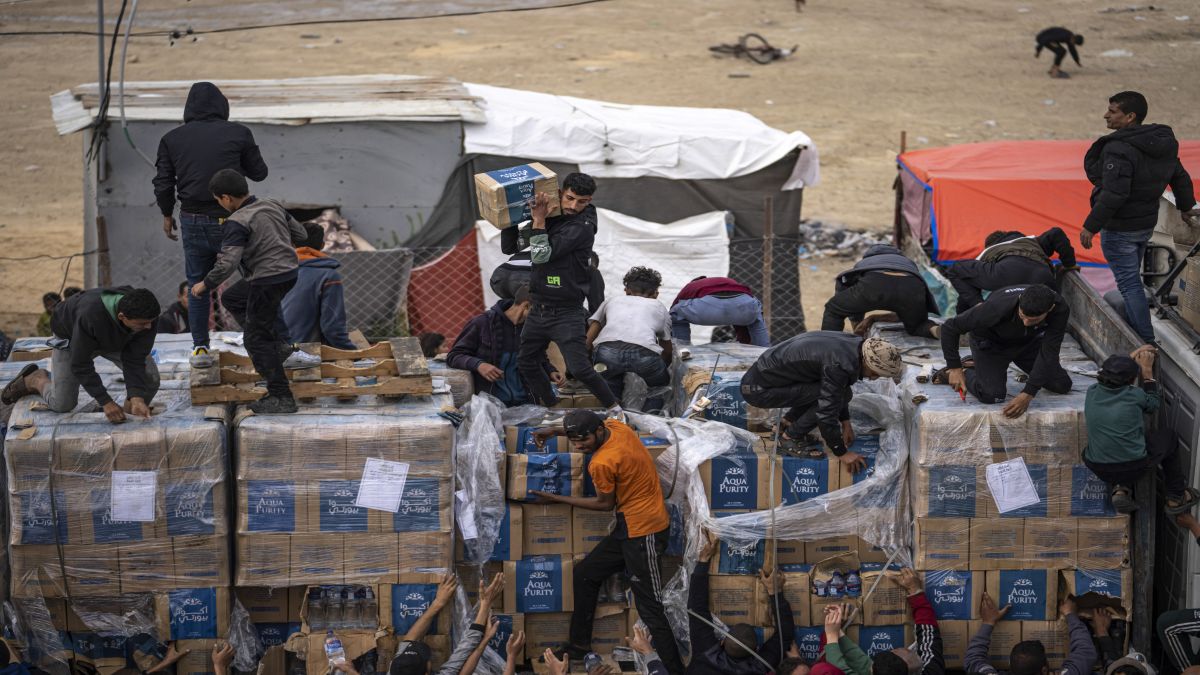Hunger is ravaging Gaza, and the situation is dire.
Amid this, the United Nations World Food Programme (WFP) announced on Tuesday that aid deliveries to northern Gaza have been suspended. The reason: an inability to ensure the safety and security of its employees following a convoy of trucks encountering gunfire and looting.
“The decision to pause deliveries to the north of the Gaza Strip has not been taken lightly, as we know it means the situation there will deteriorate further and more people risk dying of hunger,” the World Food Programme (WFP) said in a press release.
“WFP is deeply committed to urgently reaching desperate people across Gaza but the safety and security to deliver critical food aid — and for the people receiving it — must be ensured,” the statement went on to say.
Here’s why UN food agency has stopped delivering aid to northern Gaza, and how it will affect the situation in Gaza.
‘Unprecedented levels of desperation in Gaza’
The World Food Programme (WFP) resumed deliveries on Sunday after a three-week halt but its convoy “faced complete chaos and violence due to the collapse of civil order”, it said.
Twenty weeks into Israel’s war against Hamas in the Gaza Strip, UN agencies have warned that food and safe water are very scarce and WFP said its teams had reported “unprecedented levels of desperation”.
Impact Shorts
More ShortsThe Rome-based agency said it had planned to send trucks of food each day for seven days.
But on Sunday the convoy had to fend off “multiple attempts by people trying to climb aboard our trucks, then facing gunfire once we entered Gaza City”, it said.
“On Monday, the second convoy’s journey north faced complete chaos and violence due to the collapse of civil order.
“Several trucks were looted… and a truck driver was beaten. The remaining flour was spontaneously distributed off the trucks in Gaza City, amidst high tension and explosive anger,” it added.
WFP said it was forced to pause the deliveries “until conditions are in place that allow for safe distributions”.
It added that it was not a decision taken lightly because it “means the situation there will deteriorate further and more people risk dying of hunger”.
People are dying
Since the start of the war, Gaza has been plunged into a food crisis, with outside aid severely restricted.
In December, the Integrated Phase Classification report, compiled by 15 agencies including the World Food Programme, warned of the risk of famine in northern Gaza by May unless conditions improved significantly.
Another report released on Monday confirmed Gaza’s precipitous slide into hunger and disease. Food and safe water have become extremely scarce, and diseases are rampant, jeopardising women’s and children’s nutrition and immunity, resulting in a surge in acute malnutrition. People are already dying of hunger-related causes.
According to the UNICEF and WFP, based on recent data, the situation in the Northern Gaza Strip is particularly dire. Nutrition screenings at shelters and health centres in the north revealed that 15.6 per cent, or one in every six children under the age of two, are acutely malnourished.
The war started after Hamas’s 7 October attack on southern Israel, which resulted in the deaths of about 1,160 people, mostly civilians, according to an AFP tally of Israeli official figures.
Israel’s assault on Gaza has killed more than 29,000 people, mostly women and children, according to the Hamas-run territory’s health ministry.
With inputs from AFP
)